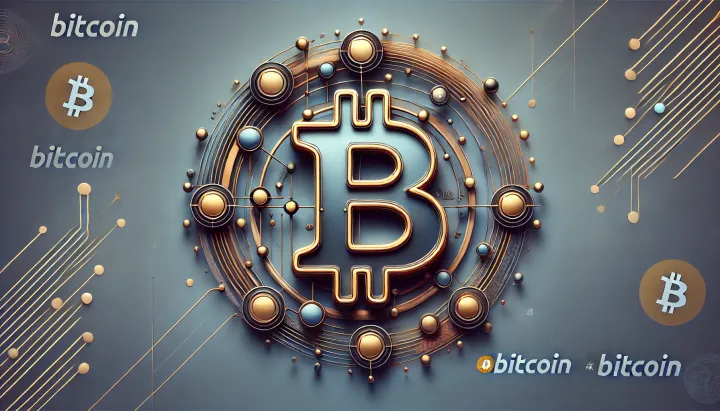Bitcoin Nodes, Sovereign Computing, and Education Futures
The July 29, 2024 episode of the Stephan Livera Podcast features Antoine Poinsot explaining inheritance tooling, the Great Consensus Cleanup, and recent Bitcoin Core disclosures.

- My 'briefing notes' summarize the content of podcast episodes; they do not reflect my own views.
- They contain (1) a summary of podcast content, (2) potential information gaps, and (3) some speculative views on wider Bitcoin implications.
- Pay attention to broadcast dates (I often summarize older episodes)
- Some episodes I summarize may be sponsored: don't trust, verify, if the information you are looking for is to be used for decision-making.
Summary
The October 01, 2024 episode of the Juan Cienfuegos Podcast features Matt Hill explaining how StartOS enables non-technical users to run Bitcoin nodes and personal servers. Hill critiques centralized custodians for misusing privacy claims and stresses that sovereignty requires direct infrastructure control. He highlights Node Nation’s node deployments in El Salvador’s schools as a model for future financial and digital literacy.
Take-Home Messages
- Sovereign Computing: Operating personal servers is the foundation of digital dignity and independence.
- Bitcoin Verification: Running a node, distinct from mining, is essential to self-verify transactions.
- Custodial Risks: Big tech’s “privacy” relies on promises that fail under coercion, hacking, or misaligned incentives.
- Algorithmic Censorship: Social media feeds amplify and suppress content, making distributed alternatives like Nostr vital.
- Educational Leverage: Node Nation’s school deployments demonstrate how literacy and infrastructure can align for future adoption.
Overview
Matt Hill introduces StartOS as a server operating system designed to give ordinary users the ability to run their own servers with a graphical interface. He argues that centralized custodians of cloud and platform infrastructure cannot deliver real privacy, since they retain all user data and can be compelled to disclose it. Sovereignty, in his framing, is the capacity to administer your own infrastructure without permanent reliance on third parties.
The discussion turns to Bitcoin, where Hill explains that operating a node is the proper way to engage with the network without intermediaries. He distinguishes pruned nodes, archival nodes, and mining nodes, clarifying that mining and node operation are separate activities. Wallets connected directly to personal nodes guarantee verifiable transaction data, unlike reliance on external operators.
Hill extends his critique to information flows on platforms such as Facebook and X, where algorithms create suppression and amplification that function as modern censorship. He contrasts this with Nostr, an open relay model that, like Bitcoin, distributes authority across many operators. By adopting self-hosted infrastructure, individuals minimize intermediaries and choose selectively which third parties to trust.
Education is presented as the strongest pathway to adoption. Hill praises Node Nation’s integration of Bitcoin nodes into Salvadoran schools, noting that younger generations are more likely to internalize new systems than adults bound to existing frameworks. He views this approach as a scalable model of financial and digital literacy that aligns with Start9’s open-source mission, regardless of profit.
Stakeholder Perspectives
- Students and Teachers: See Bitcoin nodes as tools for hands-on education in financial and digital literacy.
- School Administrators: Require reliable infrastructure and training support to make classroom deployments sustainable.
- Bitcoin Users: Value simplified, trustworthy tools that allow independent transaction verification.
- Technology Developers: Focus on building secure wallet-to-node connections and reducing user friction.
- Regulators: Weigh innovation against risks of misinformation, technical failure, or coercive misuse of custodial systems.
Implications and Future Outlook
Decentralized infrastructure shifts privacy from corporate custodians to individual users, creating new baselines for digital trust. If simplified server systems like StartOS succeed in lowering technical barriers, they could accelerate mainstream Bitcoin node operation and broader personal server adoption. The result is less reliance on companies whose incentives conflict with user sovereignty.
Educational programs such as Node Nation provide leverage by teaching sovereignty at scale, embedding technical skills alongside financial literacy. If successful in El Salvador, this approach may inspire similar initiatives in other jurisdictions, especially those seeking alternatives to fragile legacy systems. Future adoption depends less on technical feasibility than on institutional willingness to integrate these models.
The main vulnerabilities lie in maintenance, incentives, and governance. Without long-term support, nodes in schools could decay into unused devices, undermining credibility. Stakeholders must design incentives and support structures that make self-hosting not only possible but durable, anchoring sovereignty as a lived practice rather than a slogan.
Some Key Information Gaps
- What design solutions can lower barriers for non-technical users to operate nodes long-term? Simplifying administration is critical to make sovereignty accessible beyond expert communities.
- How can public misconceptions between Bitcoin mining and nodes be corrected? Clear education is necessary to prevent misinformed adoption and to strengthen network resilience.
- How can education systems integrate financial literacy into core curricula? Embedding Bitcoin and digital sovereignty in schools can normalize critical skills for future citizens.
- What partnerships could scale Node Nation across El Salvador’s school system? Sustainable expansion requires coordination between educators, policymakers, and technology providers.
- What business models sustain open-source sovereignty projects without compromising values? Long-term viability of projects like StartOS depends on aligning economic incentives with mission integrity.
Broader Implications for Bitcoin
Redefining Digital Privacy
Bitcoin node adoption combined with sovereign server use signals a wider cultural shift toward rejecting custodial definitions of privacy. As individuals and institutions gain direct control of infrastructure, privacy becomes a practice rather than a promise (see my recent 'Bitcoin Worlds' working paper, which highlights the importance of routine practices for sovereignty-first Bitcoiners). This redefinition could pressure regulators and firms to accommodate a baseline expectation of verifiable independence in digital systems.
Education as Adoption Catalyst
The use of school-based Bitcoin node deployments illustrates education’s role as a driver of systemic change. By embedding sovereignty in early learning, societies create generational familiarity that bypasses adult skepticism and speculative motives. This model could redefine financial education worldwide, positioning Bitcoin literacy as essential as reading or arithmetic.
Institutional Dependence and Resilience
If educational or community deployments succeed, states and NGOs may rely on open-source infrastructures for broader social functions. Such dependence introduces both resilience and vulnerability: resilience through distributed design, vulnerability if support ecosystems collapse. The balance between community self-reliance and institutional scaling will shape how Bitcoin-related infrastructures integrate into public life.



Comments ()